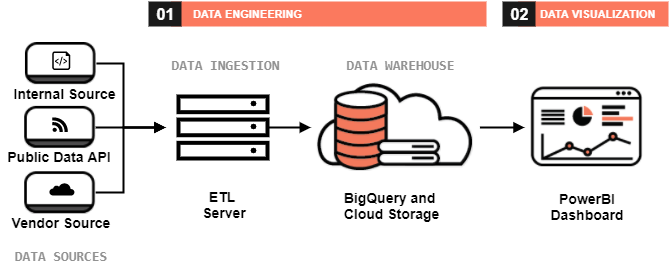How can data help solve the logistics problem in one of the most densely populated cities in the world?

At 41,515/sq km, the Philippine's capital of Manila is the most densely populated city in the world [1]. In a country of 145 cities, 1,489 municipalities ('barangays'), across more than 7,000 islands, to say that the logistics challenge is an understatement [2]. Can big data solve one of the world's biggest logistical headaches?
In building an e-commerce platform that is measured by on-time deliveries, the prerequisite is that the database of addresses is accurate. The Philippines is sorely lacking the information necessary to execute. To solve this issue, Quad X has built a proprietary data analytics software called X Analytics (XA), which aims to use agile software to continuously improve and update its algorithm. Like a lot of Quad X’s systems, XA runs on Amazon Web Services. However, in order to build out the necessary data infrastructure to execute this complex problem, Quad X has augmented AWS with the Oracle Cloud and Google Cloud platforms. The machine learning system, assisted by data science company Thinking Machines, has attempted to break down the Philippine postal system into something simple: the source and its destination.
The issue with the Philippine postal system is that the four digit zip code was severely limited. In order to build a more robust system, Quad X used an internally defined seven-character alphanumeric system to create a unique label for each permutation of each city, province, and municipality across the country. Using this new code, it’ll help the company cut down on processing time, make less errors, and integrate robotic process automation to allow it to process thousands of parcels per hour. In order to truly take the next step, Quad X needs to match what Amazon is doing in the west with same day deliveries. To do this, Quad X needs to use its data to predict demand volume and adjust their infrastructure accordingly, either using its hubs or hiring more drivers. This uses data ingestion, a data warehouse, and a data visualization system to gain insights (see below).

[3]
After just two months of implementing this system, Quad X was able to build order-level visibility across the entire supply chain, allowing them to identify complex problems and adapt to customer needs a lot more quickly. At the forefront of all of this is a group of riders called ‘Kaberx’ (a play on words of Kabarkada, which means community of friends in Filipino), which creates rider entrepreneurs to shift the previous agency based delivery model to a performance based model, leveraging the existing network of motorcycle riders nationwide.

With 1200 riders servicing 50,000 transactions daily (and 150k transactions during peak season), the life of a partner isn’t easy. While these riders set their own schedule, and accordingly their performance-based salary, they can work long hours in order to support their families. However, relative to their previous jobs at sea, the partner program is a welcome upgrade. One of the riders, Dandy Loquero, was in Taiwan’s fishing waters for 10 months, working from 7:00am-4:00am, at times not catching enough to break even, let alone profit [4]. As he moved back home to his family, Dandy heard about an incentive-based program called KaberX, and according to him, it changed his life. By empowering them to become their own bosses, these riders set their own schedule and accept only the orders they want to. On top of this autonomy, QuadX holds programs within its various hubs, creating a community of empowered riders, boosting morale and improving overall productivity.
Looking ahead, QuadX aims to be product-agnostic, aiming to own the last mile delivery network of the value chain. As the Philippines’ first big data logistics company, the company hopes to create products and services that make it easier for every Filipino to go into business or continuously grow it [5]. By creating a platform that makes it easier for buyers and sellers to transact with one another, all while empowering its riders to become entrepreneurs, the company is getting closer and closer to achieving its mission. It has invested in data infrastructure, technology, and its people, QuadX seems to be leveraging its big data to make a significant difference in the e-commerce market of the Philippines. Can the company complete this Herculean task? We’ll find out soon enough.
[1]: https://www.worldatlas.com/articles/the-world-s-most-densely-populated-cities.html
[2]: https://www.techinasia.com/startup-revolutionizing-ecommerce-logistics-data-analytics
[4]: https://www.techinasia.com/fisherman-business-owner-story-kaberx-rider-partner



Interesting article. I wonder how the government of the Philippines perceives such initiative. Is there any plan from the government to co-invest in the necessary infrastructure to improve the domestic logistics network? This last-mile delivery issue seems like one many companies trying to grow in the Philipines will face and an important one to fix.